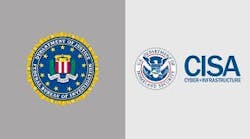WASHINGTON -- Homeland Security Secretary Michael Chertoff announced sweeping changes at his 2-year-old department Wednesday, including new technology to help protect the nation's transit system from a biological attack or other weapons of mass destruction.
The overhaul, in the works for months, comes on the heels of last week's bombings of London's subways and bus systems. It also will centralize terrorism analysis, put a higher priority on bioterrorism issues and tighten U.S. borders.
"We will be straightforward," Chertoff told a ballroom of hundreds of lawmakers, department employees and other officials. "If something goes wrong, we will not only acknowledge it, we will be the first to fix the error."
Chertoff said the department would look to use technology to detect explosives and biological, chemical or radioactive material on rail, subway and bus systems. Deputy Secretary Michael Jackson told reporters the detection tools probably would be installed in large cities with subway systems subject to the greatest risk of attack. Those cities would probably include New York and Washington.
These types of technologies, still in varying stages of development, could cost the government an estimated $6 billion to buy, install and maintain, said William Millar, president of the American Public Transportation Association. He agreed with the push for better weapons detectors, provided that Washington finds the money and the security "doesn't hold up our passengers."
An estimated 32 million commuters ride subways, trains and buses every day, Millar said.
Homeland Security, which has a proposed $31.8 billion budget for next year, has less than $1 billion specifically set aside for mass transit safety. A Senate fight is looming this week among ranking Republicans who differ - by $900 million - on how much to spend on mass transit security.
The Homeland Security changes are intended to settle federal turf wars and growing pains at the department. A direct response to the attacks of Sept. 11, 2001, the department was created in 2002 by combining 22 agencies.
Chertoff said the agency is "open to change." The reforms include hiring a director to centralize intelligence information gathered by 11 Homeland Security bureaus; and a chief medical officer to oversee bioterrorism policy and coordinate responses to biological attacks.
In welcome news to Washington-area passengers, the government is ending the restriction that had prevented air passengers from leaving their seats for 30 minutes before flying into or out of Reagan National Airport.
The department also is trying to tighten security at U.S. borders, but Chertoff said doing so should not come at the cost of migrant immigrants who come to the U.S. to find work. He said he and Secretary of State Condoleezza Rice soon will announce plans to ease visa hassles for foreigners entering the country to visit, work or study.
Eighty percent of the proposed changes can be accomplished under Chertoff's existing authority; the others require congressional approval.
Lawmakers generally offered cautious praise for the changes. But union leaders representing the department's 180,000 employees questioned whether the reorganization would do much to make the nation safer.
"It's a tired repackaging under a guise of a new agenda, but in fact, nothing is changing," said T.J. Bonner, president of the union that represents border patrol agents. "Our borders continue to be wide open, and their only solution is the same failed polices."
Frank Cilluffo, director of homeland security studies at George Washington University, said the changes signal an increased dependence on new technology to fight terrorism.
Cilluffo, who helped set up the department while he was a White House adviser after the Sept. 11 attacks, said the overhaul was needed to refocus Homeland Security's strategy.
"I think of it as the second phase of a rocket boost," Cilluffo said. "The first one may have been on target, but it needed some course adjustment."

